Quality Assurance (QA), Quality Control (QC), and Non-Destructive Testing (NDT) are critical processes in various industries, particularly those involving manufacturing, construction, and infrastructure development.
Quality Assurance (QA), Quality Control (QC), and Non-Destructive Testing (NDT) are critical processes in various industries, particularly those involving manufacturing, construction, and infrastructure development. Here’s a brief overview of each:
Quality Assurance (QA):
QA is a systematic process implemented by organizations to ensure that products, services, and processes meet predefined quality standards and requirements.
It involves establishing quality objectives, developing quality management systems, and implementing procedures to monitor and evaluate performance against those objectives.
QA focuses on preventing defects, errors, and deviations from specifications by identifying and addressing root causes and implementing corrective and preventive actions.
QA encompasses activities such as quality planning, process improvement, training, auditing, and continuous monitoring and measurement.
Quality Control (QC):
QC is the process of inspecting, testing, and evaluating products or services to verify that they meet specified quality criteria and conform to established standards and requirements.
QC activities typically involve checking raw materials, components, intermediate products, and final outputs for defects, deviations, and non-conformities.
QC aims to identify and rectify quality issues before products are released to customers or end-users, ensuring that only conforming products are delivered.
QC methods may include visual inspection, dimensional measurement, functional testing, destructive testing, and statistical analysis of data.
Non-Destructive Testing (NDT):
NDT is a set of techniques and methods used to assess the integrity, quality, and properties of materials, components, and structures without causing damage or destruction to the tested objects.
NDT methods are essential for detecting flaws, defects, discontinuities, and material properties that may affect the performance or safety of critical components.
Common NDT techniques include ultrasonic testing (UT), radiographic testing (RT), magnetic particle testing (MT), liquid penetrant testing (PT), eddy current testing (ET), visual inspection (VT), and acoustic emission testing (AE).
NDT is widely used in industries such as aerospace, automotive, manufacturing, oil and gas, power generation, construction, and infrastructure to ensure the reliability, safety, and performance of equipment, structures, and systems.
In summary, QA focuses on establishing processes to ensure quality, QC involves inspecting and testing products to verify compliance with standards, and NDT encompasses non-destructive techniques for evaluating the integrity of materials and components. Together, these processes contribute to the delivery of high-quality products and services while maintaining safety and reliability in various industries.
a) Ultrasonic Testing
b) Radiographic Testing
C) Eddy Current Testing
d) Magnetic Testing
e) Radiographic Film Interpretation
f) Penetrant Testig
g) Visual & Optical Testing
h) Six Sigma Certification
1. We are the pioneers in CAD/CAM/CAE/PPM/ Animation & Multimedia
2. Training on Original Software’s and Official Training Courseware
3. Internationally Valid Certification & Placement Assistance
4. Regular upgrades in course contents and course materials
5. Task-Oriented, Competency-Based Course Design
6. A Truly Hands On Learning Experience
7. Money Back guarantee & Easy Fees Installments
8. Small Class Size to get personal attention
9. A Cost-Effective, Total Solution
10. Training by working professionals & Certified Staffs
11. More lab timings and Individual Systems
12. Option for attending free classes before taking the admission
13. Online training & Online doubt Clearance facility
14. Excellent Industry Oriented Syllabus.
15. No syllabus cut depends on the fees reduction like our competitors.
16. Course duration depends upon your perfection level not like 60 hours or 80 hours class
CAD QUIZ SCHOLARSHIP
Our cad quiz scholarship programs is designs to identify talented students and provide them world class training for discounted rates. All you do is take a simple 15 min aptitude test at our office / at your college. The selected candidates will get discounts as well as prizes. ”Collect Your Offer Before Joining the Course”

We don’t send spam so don’t worry
Thiruvalla | Pandalam | Adoor | Pathanamthitta | Kayamkulam | Punalur | Anchal | Karunagappaly | Kollam City | Karicode | Kilimanoor | Nedumangad | Neyyattinkara | Trivandrum City | Marthandam-TN | Kottayam | Kuttikkanam | Muvattupuzha | Perumbavoor | Ankamaly | Kalamassery | Ernakulam – Pallimukku | Thrissur | Valanchery – Malappuram | Palakkad | Calicut…. etc